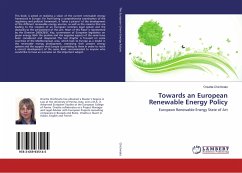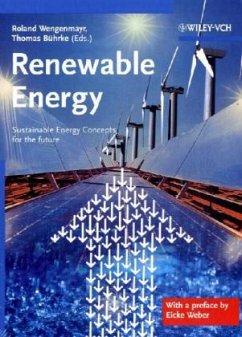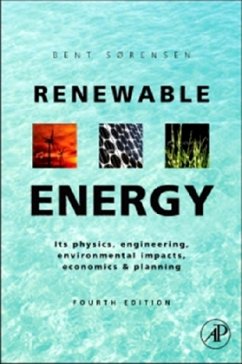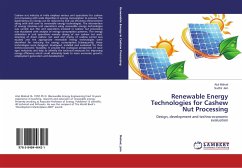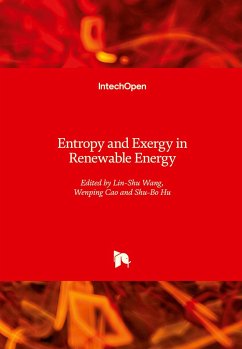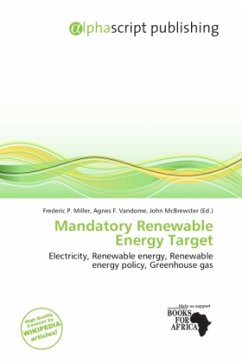
Mandatory Renewable Energy Target
Electricity, Renewable energy, Renewable energy policy, Greenhouse gas
Herausgegeben: Miller, Frederic P.; Vandome, Agnes F.; McBrewster, John
Versandkostenfrei!
Versandfertig in 6-10 Tagen
32,99 €
inkl. MwSt.

PAYBACK Punkte
16 °P sammeln!
Please note that the content of this book primarily consists of articles available from Wikipedia or other free sources online. A mandatory renewable energy target is a government legislated requirement on electricity retailers to source specific proportions of total electricity sales from renewable energy sources according to a fixed timeframe. The additional cost is distributed across most customers by increases in other tariffs. The cost of this measure is therefore not funded by government budgets, except for costs of establishing and monitoring the scheme and any audit and enforcement act...
Please note that the content of this book primarily consists of articles available from Wikipedia or other free sources online. A mandatory renewable energy target is a government legislated requirement on electricity retailers to source specific proportions of total electricity sales from renewable energy sources according to a fixed timeframe. The additional cost is distributed across most customers by increases in other tariffs. The cost of this measure is therefore not funded by government budgets, except for costs of establishing and monitoring the scheme and any audit and enforcement actions. At least 66 countries, including 27 EU countries have renewable energy policy targets of some type. The EU baseline target is 20% by 2020. While the USA does not have a national RET, 29 of its states do. Similarly Canada has 9 provincial RETs but no national target. Targets are typically for shares of electricity production, but some are defined as by primary energy supply, installed capacity or otherwise. While some targets are based on 2010-12, many are now for 2020 which ties in with the IPCC suggested greenhouse gas emission cuts of 25 to 40% by Annex I countries by 2020, although some are for 2025.





